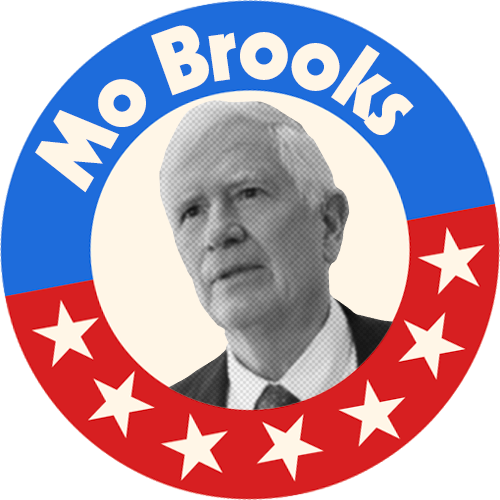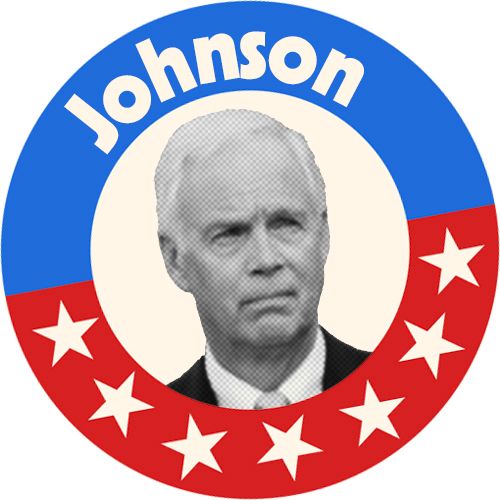The primaries are now in full swing, with 17 states holding elections this month to nominate candidates for November. The 2022 midterms will determine whether Democrats retain or lose their fragile control over the U.S. Senate and House, along with the balance of power in many states holding legislative and gubernatorial contests. Typically the president’s party loses ground in midterms, particularly if he’s as unpopular as Joe Biden and the economy is troubled. The odds are high that Republicans will take the House and make some state-level gains. Democrats may be able to hold onto the Senate thanks to a favorable landscape, though the size of the likely Republican “wave” will make a lot of difference up and down the ballot.
With a third of the U.S. Senate up for reelection and 36 states holding gubernatorial contests, there’s a lot to keep track of. This guide, which we’ll update throughout the cycle, will help you track all the crucial races, primary upsets, and campaign drama — both Donald Trump–fueled and naturally occurring — from now through Election Day on November 8.
U.S. Senate Races
.
Ohio: A hillbilly’s elegy
Primary Date: May 3
The Republican Primary: J.D. Vance won a tense, expensive multi-candidate battle. All but one prospect (Matt Dolan) pledged fealty to Trump, but Vance — the venture capitalist, Hillbilly Elegy author, and populist favorite — won the ex-president’s endorsement and then the primary, edging out early front-runner Josh Mandel and late surging Dolan.
The Democratic Primary: Congressman and former 2020 presidential candidate Tim Ryan easiy won the Democratic nomination. He’s hoping the nasty GOP primary will help him overcome Ohio’s recent Republican trend.
.
Pennsylvania: Is the doctor in?
Primary Date: May 17
The Republican Primary: Senator Pat Toomey’s retirement sparked a highly competitive, multi-candidate GOP primary to succeed him. Trump upended the race when he endorsed Mehmet Oz. The TV doctor battled former hedge-fund executive David McCormick, with each man accusing the other of ideological heresy and affection for China. There was a late surge of support for former Fox News gabber Kathy Barnette; who was endorsed by gubernatorial front-runner Doug Mastriano. On Election Night, Oz and McCormick were virtually tied, but with a recount underway McCormick conceded, making Oz the nominee.
The Democrats: Eccentric progressive Lieutenant Governor John Fetterman easily defeated Congressman Conor Lamb and State Representative Malcolm Kenyatta, despite Fetterman suffering a stroke and then having a pacemaker installed on primary day.
The General Election: The Oz-Fetterman contest should be one of the most highly competitive 2022 races, as Pennsylvania narrowly went for Trump in 2016 and for Biden in 2020.
.
North Carolina: Trump’s Budd wins.
Primary Date: May 17
The Republican Primary: The early front-runner was former governor Pat McCrory, but he was soundly defeated by three-term congressman and House Freedom Caucus member Ted Budd, who got an early endorsement from Trump. Former congressman Mark Walker trailed badly.
The Democratic Primary: The Democratic field has been dominated by former state Supreme Court chief justice Cheri Beasley, who won the nomination easily. She’s been a strong fundraiser, and has gained national visibility in her effort to become just the third Black woman ever to serve in the U.S. Senate.
The General Election: The race should be competitive, but since North Carolina leans slightly Republican, the GOP nominee is favored to win.
.
Alabama: Brooks Loses to Britt After Being Dumped By Trump.
Primary Date: May 24
The Republican Primary: The initial front-runner for the GOP nomination to succeed 86-year-old Senator Richard Shelby was Congressman Mo Brooks, who led the charge in Congress to execute Trump’s election coup. The former president endorsed Brooks only to drop him on absurd accusations of wokeness as he plunged in the polls. Brooks was replaced at the top of most polls by Mike Durant, a wealthy businessman famed as a survivor of the Somalia firefight that inspired the book and movie Black Hawk Down. But Durant was soon eclipsed by Katie Britt, Shelby’s former chief of staff who later ran Alabama’s top business lobby. Amazingly the Trump-less Brooks launched a comeback and made the June 21 runoff, trailing Britt 45-29. But then Trump endorsed Britt, who won the runoff easily.
The Democratic Primary: Democrats have all but conceded the Senate seat to Republicans, with perennial candidate and minister Will Boyd likely to win the nomination.
.
Georgia: Walker Glides to the Senate Nomination
Primary Date: May 24
The General Election: Less than two years after winning a special-election runoff to help Democrats flip two Georgia Senate seats and seize control of the chamber, Senator Raphael Warnock is running for a full term. He’s been raising money at an epic clip, and he’ll likely need it. The race will be one of the most-watched in the country given Georgia’s emergence as a national battleground state.
The Republican Primary: Georgia football legend Herschel Walker easily won the Republican Senate nomination over a large field of rivals who never really laid a glove on him. The strongest of them, Gary Black, the state agriculture commissioner, went after Walker for shady business dealings, allegedly making threats against his ex-wife, and his admitted history of mental illness. But “Herschel” is a living icon in the state, and with help from both Trump and Mitch McConnell, he’s raising a lot of money (though not as much as Warnock so far) and won more than two-thirds of the vote. Subsequently reporters revealed Walker had a previously unacknowledged son out of wedlock, adding to perceptions of a troubled past.
.
Nevada: The senator’s son (and grandson).
Primary Date: June 14
The General Election: Freshman senator Catherine Cortez Masto is one of this year’s most vulnerable Democratic senators. The general election should be a barn-burner, as Republicans have recently been chipping away at the advantage Democrats held when Harry Reid was their election strategist.
The Republican Primary: The Republican chosen by both Trump and state party leaders to take on Cortez Masto was former state attorney general Adam Laxalt, the grandson of legendary Nevada governor and senator Paul Laxalt, and son of New Mexico senator Pete Domenici. Laxalt has been a loud booster of Trump’s election-fraud claims, but was nearly outflanked on the right by primary opponent Sam Brown. Eventually, Laxalt won the nomination by a comfortable margin.
.
Colorado: A bad year for Bennet?
Primary Date: June 28
The Republican Primary: Republicans chose relatively moderate business executive Joe O’Dea over hard-core MAGA legislator Ron Hanks, giving them the kind of a candidate who could catch a red wave in November. A Colorado Democratic PAC is ran ads attacking Hanks as “too conservative for Colorado,” in a ploy designed to help him among conservative primary voters, but it wasn’t enough. O’Dea is the rare Republican who supports early-term abortion rights.
The General Election: Colorado is a fairly solid blue state, but Senator Michael Bennet, a failed presidential candidate who has never topped 50 percent in two prior elections, could be vulnerable. Bennet remains the favorite, but if the GOP wave is large, look out.
.
Oklahoma: A primary so nice Republicans are doing it twice.
Primary Date: June 28
The Republican Primary: Oklahoma voters get to choose two Senate nominees this year. The first is for the seat currently held by Republican James Lankford, who easily dispatched primary opponent Jackson Lahmeyer, an evangelical minister who was endorsed by an impressive array of the hardest-core MAGA extremists. Lankford expected to win easily in November.
The Special Election: The race to complete the term of Republican senator James Inhofe, who has announced he will step down next year, is a bit dicier. In a field of 13 Republicans competing in a special election congressman Markwayne Mullin, a former mixed martial arts fighter, easily led the field but did not win the majority necessary to win without a runoff. His runoff opponent will be former Oklahoma House Speaker T.W. Shannon. Former Trump EPA administrator Scott Pruitt finished a poor fifth. Democratic former congresswoman Kendra Horn is capable of giving Republicans a scare if their candidate stumbles.
.
Arizona: Welcome to the Wild West!
Primary Date: August 2
The Republican Primary: For months the GOP primary front-runner was state Attorney General Mark Brnovich, the one candidate in the race who has been sharply criticized by Trump (for his lack of support for Maricopa County’s infamous 2020 election audit). Luckily for Brnovich, the MAGA vote was splintered between self-funding businessman Jim Lamon, Thiel Capital executive Blake Masters, and former National Guard adjutant general Mick McGuire. But on June 2 Trump endorsed Masters, a solid election-denier and all-around extremist, which helped him consolidate the vote of Trump loyalists. Masters ultimately edged Lamon in the primary while Brnovich finished a poor third.
The General Election: Freshman senator Mark Kelly is another Democratic incumbent who’s vulnerable because he’s running in a highly competitive state in a good year for Republicans. The astronaut-turned-senator has been quietly building a big fundraising haul while Republicans battled to see who will take him on. Masters will help Kelly maintain a popular centrist image, while keeping Democrats energized.
.
Missouri: Greitens is finally gone.
ReprPrimary Date: August 2
The Republican Primary: Eric Greitens, who was forced to resign as governor in 2018 thanks to a sex scandal and campaign-finance irregularities, attempted a political comeback, campaigning as a MAGA outsider who has been victimized by corrupt politicians. Until recently he was leading a large field of conservative candidates, including state Attorney General Eric Schmitt, Representative Vicky Hartzler, Trump favorite Billy Long, and lawyer Mark McCloskey. But then Greitens’s ex-wife accused him of physically abusing both her and their kids, causing him to lose some ground, with Schmitt emerging as the new front-runner. The day before the primary Trump endorsed “Eric,” which both candidates of that name used to claim his support. Schmitt won easily and Greitens finished third.
The Democratic Primary: Trudy Busch Valentine, heir to the Busch beer fortune, narrowly defeated impressive political newcomer Lucas Kunce in a primary overshadowed by the Republican battle.
The General Election: The open Senate seat of retiring Republican Roy Blunt should be an easy win for the GOP in this rapidly red-trending state. Greitens would have been a white-knuckle proposition against Valentine, but Schmitt will be heavily favored.
.
Wisconsin: Can Ron Johnson do it again?
Primary Date: August 9
The Republican Primary: Two-term incumbent Senator Ron Johnson is a conspiracy theory-spouting conservative who seems perpetually in political trouble. But he has twice exceeded expectations in a state that has been trending conservative since 2010.
The Democratic Primary: What was once a competitive multi-candidate field resolved itself in July as Milwaukee Bucks executive Alex Lasry and state Treasurer Sarah Godlewski both withdrew and endorsed Lieutenant Governor Mandela Barnes.
The General Election: Given Wisconsin’s degree of partisan polarization, the names of the candidates may not matter a lot, though Johnson has some demonstrable appeal to anti-government independents (if he can get them to vote). A lot of national money will come into the general election contest in this state.
Alaska: New system is a boon for Murkowski.
Primary Date: August 16
The Top Four Primary: In 2020, Alaska voters approved a new election system. It includes a non-partisan primary where the top four candidates advance to a general election, and then ranked-choice voting determines the winner. The top four innovation arrived just in time to save three-term Republican senator Lisa Murkowski from a GOP primary in which Trump endorsee Kelly Tshibaka might have beaten her. Instead, Murkowski, Tshibaka and Democrat Pat Chesbro easily made the Top Four cut, with a minor Republican candidate like to fill the fourth spot.
The General Election: Ranked-choice voting should benefit the centrist Murkowski if she can maintain some Republican support, but if intra-Republican bitterness thanks to Trump’s hatred of the incumbent intensifies, anything could happen.
.
Florida: No longer a battleground state?
Primary Date: August 23
The Democratic Primary: In Representative Val Demings, Democrats have an unusually strong candidate to take on GOP senator Marco Rubio. Demings is raising a lot of money and seems well ahead of the large field of candidates.
The General Election: After 2020, the conventional wisdom held that Florida had tipped from purple to red thanks to Democratic losses among Hispanic voters and superior GOP campaign tactics. Demings may be the strongest possible Rubio opponent, but polls show the incumbent with a solid and steady lead in the high single digits. Given 2022’s pro-Republican dynamics, his seat should be safe.
.
New Hampshire: Did Hassan dodge a bullet?
Primary Date: September 13
The Republican Primary: Popular New Hampshire governor Chris Sununu disappointed both state and national Republicans by opting not to run for the Senate. With Sununu out, Republicans do not have an impressive group of candidates. The front-runner is former Special Forces general Don Bolduc, a hard-core MAGA activist. His strongest rival on paper, former state senate president Chuck Morse, hasn’t really caught on yet. The filing deadline isn’t until June, so better-known Republicans could still enter the race.
The General Election: The best day of freshman Democratic senator Maggie Hassan’s reelection campaign was when Sununu said he wouldn’t run against her. Since then she’s been posting not very encouraging job-approval numbers, and President Biden seems to be very unpopular in the Granite State, despite having carried it handily in 2020.
Gubernatorial Races
.
Ohio: Whaley will challenge DeWine
Primary Date: May 3
The Republican Primary: Incumbent Republican governor Mike DeWine angered some MAGA folk with his decisions related to the pandemic. But he easily won renomination to a second term, trailed by former congressman Jim Renacci and farmer Joe Blystone (an organizer of anti-lockdown protests after a DeWine decision forced him to close a restaurant he owned). Trump did not make an endorsement.
The Democratic Primary: This was a competitive race between two former mayors: John Cranley of Cincinnati and Nan Whaley of Dayton. Whaley won by a surprising large margin, and will seek to overcome Ohio’s increasinglyRepublican bent.
.
Nebraska: Nasty allegations blow up the GOP race.
Primary Date: May 10
The Republican Primary: Wealthy farmer and Trump endorsee Charles Herbster was steadily leading in polls for the GOP nomination to succeed term-limited Governor Pete Ricketts when eight women (including a Republican state senator) accused him of sexual assault in recent years. Coached by Trump himself, Herbster fired back at his accusers, claiming they were smearing him on behalf of his primary opponent Jim Pillen. But the damage was done: Pillen (backed by term-limited current governor Pete Ricketts) beat Herbster in the primary.
The Democratic Primary: State Senator Carol Blood is the Democratic nominee, but she doesn’t have much of a chance in deep-red Nebraska.
.
Oregon: A three-way general election looms.
Primary Date: May 17
The Democratic Primary: With unpopular Democratic incumbent Kate Brown term-limited, Oregon’s primaries have been wide open in both parties. The Democratic primary took a detour when former New York Times columnist Nicholas Kristof was knocked off the ballot for not satisfying residency requirements. This left two well-known Democrats in the race: former longtime House Speaker Tina Kotek and State Treasurer Tobias Read. Kotek won by a comfortable margin, and will now face concerns she is too progressive or too much like Brown.
The Republican Primary: Republicans had a large field with no real powerhouses; former state legislative leader Christine Drazan leads law-and-order champion Bob Tiernan in late returns but the race hasn’t been called.
The General Election: In a state with a lot of anger at the political establishment, former Democratic legislator Betsy Johnson is waging a serious and well-financed independent campaign that could create a rare three-way race.
.
Idaho: Little wins a true Republican grudge match.
Primary Date: May 17
The Republican Primary: Governor Brad Little and Lieutenant Governor Janice McGeachin were not on the same page even before the latter decided to challenge the former’s renomination. A fiery MAGA activist who is friendly toward Idaho’s notorious right-wing militias, McGeachin took strong objection to Little’s relatively mild COVID-19 measures, twice overruling them upon briefly becoming acting governor when the actual governor was out of state (Little rescinded her actions immediately). While McGeachin got priceless exposure and also snagged a Trump endorsement, Little trounced her soundly.
The General Election: An unknown teacher was the only candidate who filed for the Democratic primary, which is a sign of how bad things have become for the party in Idaho.
.
Pennsylvania: Mastriano is the Trumpiest of them all.
Primary Date: May 17
The Republican Primary: While Democrats have already united behind state Attorney General Josh Shapiro, Republicans had a large field of rivals jostling for attention. State Senator Doug Mastriano, who became famous for promoting Trumpy conspiracy theories, took a strong lead in late polls, even before the former president endorsed him on May 14. Despite an effort from Republican establishment figures to consolidate support behind former congressman Lou Barletta (another MAGA enthusiast), Mastriano won easily.
The General Election: Republicans would dearly love to flip the governorship held by term-limited Democrat Tom Wolf, likely giving them a trifecta in the 2024 battleground state, where Trump fans are still consumed with election-fraud fables. But Mastriano may have been their weakest option; he begins the general election campaign as an underdog against Democratic Attorney General Josh Shapiro.
.
Georgia: Brian Kemp trounces Perdue (and Trump).
Primary Date: May 24
The Republican Primary: When former U.S. Senator David Perdue announced he would challenge incumbent Governor Brian Kemp last December, it looked like Trump’s plan to purge Kemp for not supporting his 2020 election-fraud claims might succeed. But that was the high point of Perdue’s campaign. Kemp heavily outspent his challenger, and also outflanked Perdue on the right by demagoguing on “election integrity,” enacting base-voter-pleasing tax cuts, gasoline-price measures, anti-abortion laws, and unlicensed gun-carry rights. Kemp eventually won with nearly three-fourths of the primary vote, allowing him to skip an expensive runoff and begin reuniting his party to take on Democratic candidate Stacey Abrams.
The General Election: Abrams is unopposed in the Democratic primary, and is hoping the lessons she learned in her narrow 2018 loss to Kemp and the continued demographic evolution of Georgia can offset the pro-Republican midterm dynamics.
.
Nevada: Can Democrats hold it together?
Primary Date: June 14
The Republican Primary: Democratic governor Steve Sisolak is running for reelection, and a large field of Republican challengers has formed anticipating a GOP sweep in the state this November, thanks to grim economic conditions and Democratic weakness among their key Latino constituency. Clark County Sheriff Joe Lombardo managed to pick up a Trump endorsement without having to say too many zany things. Former U.S. senator Dean Heller was also in the race, along with North Las Vegas mayor John Lee, but it was anti-vaccine-and-mask-mandate crusader Joey Gilbert who gave Lombardo a scare, before the sheriff won the primary with a plurality.
The General Election: Conflicting polls have Sisolak holding a modest lead over Lombardo, or trailing him by a couple of points. The race should stay close to the end, with Democrats trying to rev up the voter-mobilization mechanisms put into place by the late Harry Reid.
.
Illinois: Battle of the billionaires.
Primary Date: June 28
The Republican Primary: The 2018 Illinois governor’s race set spending records, with billionaire Democrat J.B. Pritzker and his opponent spending over a quarter of a billion dollars before Pritzker prevailed. This year, Pritzker has already poured a reported $125 million into his reelection campaign, while conservative billionaires are lavishly funding the campaigns of Aurora mayor Richard Irvin and State Senator Darren Bailey. Irvin was initially the perceived front-runner. Bailey ran an overtly right-wing, anti-Establishment campaign, attacking Pritzker’s COVID-19 strategy and accusing Irvin of insufficient conservatism. He benefited from a late Trump endorsement, and from heavy spending by Pritzker in attack ads aimed at Irvin, and won the primary handily.
The General Election: Trial heats show Pritzker maintaining a comfortable lead over the major Republican candidates in this blue state. But the midterm atmosphere alongside suburban and rural fears about crime and inflation will keep Democrats nervous … and Pritzker spending. He likely got a break in the nomination of the hard-core conservative Bailey.
.
Colorado: The GOP looks to end a losing streak.
Primary Date: June 28
The Republican Primary: The last time Republicans won a governor’s race in Colorado was in 2002. Their only statewide elected official, Board of Regents member Heidi Ganahl, is one of two GOP candidates, along with Greg Lopez, mayor of the Denver suburb of Parker. A Democratic PAC has been conducting heavy ad spending labeling Lopez “too conservative for Colorado” in a ploy designed to boost him among Republican voters on grounds he would be the weaker nominee. But it didn’t work, as Ganahl won by seven points.
The General Election: Incumbent Democrat Jared Polis has generally solid job approval ratings, the ability to self-fund a campaign, and a big lead over Ganahl in the most recent polling. Republicans better hope for a wave election. Colorado isn’t out of reach for them, but it’s a tough nut to crack.
.
Maryland: Democrats are happy Hogan’s out.
Primary Date: July 19
The Democratic Primary: Republican Larry Hogan’s two terms as governor have been deeply frustrating for Democrats in this very blue state. Now that he’s hit term limits, a large and highly credentialed field of Democrats assembled to pursue the governorship. The early front-runner was State Comptroller Peter Franchot, who has been a fixture in Maryland politics for eons. There are plenty of other options for Democrats, including former U.S. Labor secretary and DNC chair Tom Perez; best-selling inspirational author Wes Moore; former attorney general Doug Gansler; and former U.S. Education secretary John King. In early returns (mail ballots will only be opened and counted on July 21) Moore led with Perez in second place and Franchot running third.
The Republican Primary: The top Republican candidates were Kelly Schulz, who held two cabinet positions under Hogan and has his endorsement, and state legislator and MAGA bravo Daniel Cox, who was endorsed by Trump. As they have done in other states, Democrats ran ads against Cox that were intended to make him more popular with conservative Republican primary voters. That and Trump’s backing seemed to have worked, as Cox won handily.
The General Election: Barring a party split, the Democratic nominee should be heavily favored against Cox.
.
Arizona: Republicans defend their trifecta.
Primary Date: August 2
The Republican Primary: With two-term Republican governor Doug Ducey term-limited, the party he more or less held together is showing some fissures. A strong supporter of election-fraud fantasies, local Fox anchor Kari Lake, won Trump’s endorsement early on and ran a full-on MAGA campaign. She led in all but one public poll, but a late surge in support on a wave of spending put Board of Regents member Karrin Taylor Robson, a self-funding real-estate developer and the budding favorite of more temperate Republicans, into second place. Former congressman Matt Salmon, who represents pre-Trump hard-core conservatism, was running third until he withdrew and endorsed Robson, as did Ducey and former Vice President Mike Pence. On primary night Robson led by a big margin, but election day votes (Lake wants to abolish early voting entirely) pushed Lake to a narrow victory.
The Democratic Primary: The longtime front-runner is the top state Democratic officeholder, Secretary of State Katie Hobbs. She’s gained significant national exposure for her mocking but expert commentary on the bizarre Maricopa County “2020 election audit.”
The General Election: This will be a marquee race and one where Democrats have a rare opportunity to bust up the Arizona GOP’s governing trifecta.
.
Michigan: Whitmer versus the world.
Primary Date: August 2
Republican Primary: With incumbent Democrat Gretchen Whitmer unopposed in her primary, all the action has been in the GOP, where a large field assembled. After multiple candidates were thrown off the ballot for irregularities in petitions, three viable candidates emerged: alleged January 6 insurrectionist Ryan Kelley; self-funding auto dealer and relatively moderate (though not anti-MAGA) Kevin Rinke; and former right-wing media figure and B-movie actress Tudor Dixon. Dixon, backed by former Education secretary and heavy funder Betsy DeVos, emerged as the front-runner, a status clinched when she won Trump’s endorsement in late July. She won the primary handily.
General Election: Whitmer has been raising a lot of national money for her reelection race, and she has become enough of a lightning rod for MAGA conservatives that her ultimate Republican opponent will be well-funded as well. Whitmer is a slight favorite, unless a national GOP wave undoes her.
Wisconsin: A Trumpy Challenger in a Very Competitive State
Primary Date: August 9
Republican Primary: For months the front-runner to take on incumbent Democratic Governor Tony Evers was Scott Walker protege Rebecca Kleefisch, who was Walker’s Lieutenant Governor for eight years. But in June Trump endorsed self-funding construction executive Tim Michels, a self-styled outsider-businessman. Despite backing from Walker, Mike Pence and Ted Cruz, Kleefisch narrowly lost to Michels, who ran up a big vote in rural and small-town Wisconsin.
General Election: Michels doesn’t seem to be wacky enough to forfeit significant Republican support, but Evers has a united Democratic Party behind him in this deeply polarized state. This contest will be a national bellwether.
U.S. House Races
Alaska
Special General Election Date: August 16
Top Four Primary Date: August 16.
Primaries: The death of veteran Republican congressman Don Young in March sparked a special election, which was the first to utilize Alaska’s new election system, which involves a non-partisan top four primary and ranked-choice voting in the general. In the June 12 special primary a 48-candidate field was led by former governor, vice-presidential nominee and proto-MAGA celebrity Sarah Palin, who was endorsed by Donald Trump. Initial front-runner Nick Begich III, the Republican grandson of a Democratic congressman and the nephew of a Democratic U.S. senator, finished a close second. Independent Al Gross and Democrat Mary Peltola were third and fourth. Gross promptly dropped out of the special general election field, producing a tight three-way contest between Peltola and the two well-known Republicans. The final results won’t be known until overseas ballots are in at the end of the month, but early results show Peltola running well ahead of the two Republicans, with Palin a few points ahead of Begich; the third-place finisher will be eliminated immediately. Odds-makers think Begich would easily defeat Peltola in ranked-choice tabulations if he survives, while a Palin and Peltola contest would be very close. Peltola, Palin, Begich and a third Republican, Tara Sweeney, made the Top Four cut for a full two-year term and will compete in November.
General Election: It’s likely that the winner of the special general election, who will take office immediately, will have a leg up in the November general election, but the larger electorate could make a different decision.
Wyoming
Primary Date: August 16
Republican Primary: Three-term Republican congresswoman Liz Cheney has had a bullseye on her back from the moment she voted to impeach Donald Trump in January of 2021. After surviving one effort to depose her as chair of the House Republican Conference (the GOP’s number-three leadership position), Cheney was purged from the party, and a large filed of primary opponents emerged in Wyoming to take her down definitively. Her fate was sealed when Trump and other MAGA Republicans consolidated behind a single rival, conservative attorney Harriet Hageman. Her campaign urged Democrats to re-register as Republicans, but there simply weren’t enough Democrats in Wyoming to save her. Hageman beat Cheney by a huge 66-29 margin.
General Election: The general election will not be competitive in this hyper-Republican state.
More on the 2022 Midterms
- J.D. Vance Explains His Conversion to MAGA
- Are Democrats the Party of Low-Turnout Elections Now?
- New Midterms Data Reveals Good News for Democrats in 2024



























































